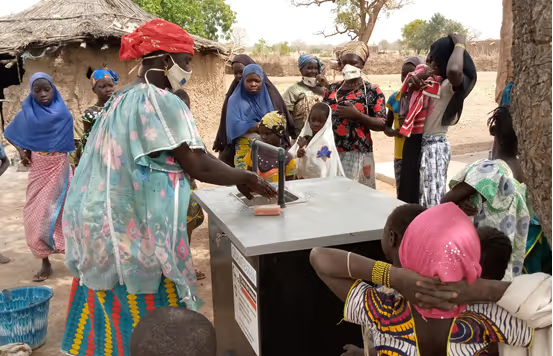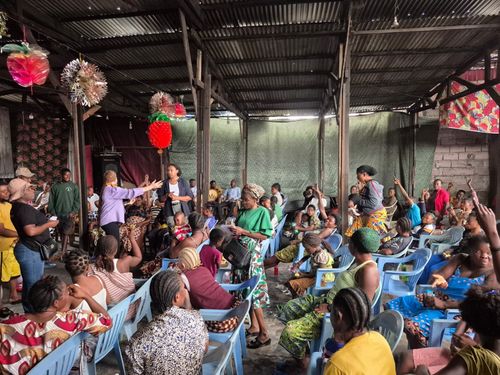gbv-risk-mitigation-in-humanitarian-crises-during-covid-19

Project overview
This mixed methods study examines how humanitarian practitioners, especially those in non-protection sectors, are incorporating COVID-19 guidance to mitigate risk of gender-based violence (GBV) toward women and girls, as well as barriers and challenges to guidance uptake.
Project solution
This project offers [specific solution or intervention] to tackle [challenge]. By implementing [strategies, tools, or innovations], the project aims to achieve [desired outcomes]. The approach is designed to [specific actions or methods] to bring about meaningful change in [community, region, or issue area].
Expected outcomes
This project aims to achieve [specific outcomes], such as [measurable results, improvements, or changes]. The expected impact includes [benefits to the target community, advancements in research or innovation, or long-term effects]. By the end of the project, we anticipate [specific changes or milestones] that will contribute to [broader goals or objectives].
Principal Investigator: Jennifer Scott, MD, MPH (Beth Israel Deaconess Medical Center)
Purpose
Evidence demonstrates that the risk of Gender-based Violence (GBV), including intimate partner violence (IPV), increases during humanitarian crises. Response efforts (i.e. quarantine) to control the spread of the novel coronavirus (SARS-CoV-2) may exacerbate IPV risk by limiting women’s options to distance themselves from perpetrators of violence and by reducing survivors’ access to GBV, health, and psychosocial services.
Upholding a gender-responsive approach to COVID-19, guidance has been developed for practitioners to integrate GBV risk mitigation into COVID-19 humanitarian response activities. Guidance documents apply previously established best practices (Guidelines for Integrating GBV Interventions in Humanitarian Action, Pocket Guidelines for Integrating Gender-Based Violence Interventions in Humanitarian Action), and evidence is needed on how the Global Guidance is being used in the context of COVID-19.
This research aims to advance understanding on how COVID-19 guidance on GBV risk mitigation is being adapted and implemented, gaps in current guidance, and barriers to adoption and implementation.
Guidance on GBV risk mitigation is critical for protecting women and girls during the COVID-19 pandemic; however, it is only effective if we understand what factors influence its implementation. Our multi-disciplinary team of humanitarian practitioners will collect field-based evidence to improve guidance and strengthen GBV risk mitigation in humanitarian contexts.
Jennifer Scott, MD, MPH, Principal Investigator
Expected Outcomes
Expected outputs include:
- Evidence to refine the Global Guidance on GBV risk mitigation for use during the current COVID-19 response, including quantitative and qualitative data and mobile app analytics. A series of case examples (across sectors and regions) will be developed for learning among humanitarian practitioners.
Expected outcomes include:
- Improved global guidance on mitigating GBV risk in non-protection sectors. Evidence will be shared with the multi-agency team developing Global Guidance on GBV risk mitigation to improve and refine guidance.
- Strengthened implementation of GBV risk mitigation measures and reduced GBV risk. Practitioners will use improved guidance, leading to reduced risk of GBV for women and girls during the current COVID-19 outbreak.
Potential longer-term outcomes include:
- Advancing the evidence base on GBV risk mitigation in non-protection humanitarian sectors.
- Improved GBV risk mitigation in future outbreaks.
- Contribution to other tools, guidance and training materials.

Project delivery & updates
Stay up to date with the latest developments from this project. Here, you will find details on what has been delivered, resources created, and regular updates as the project progresses. Access key documents, reports, and other materials to see how the project is making an impact.
Resources
Journal article
LEARN MORE





